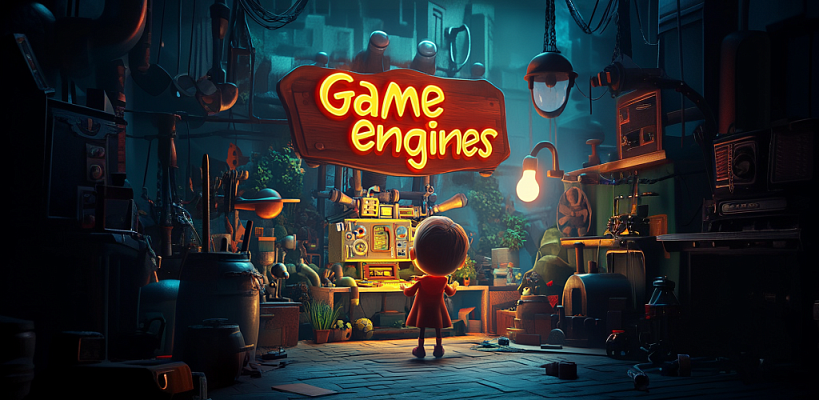Разработка мобильных игр продолжает активно развиваться, становясь все более привлекательной и технологичной отраслью. Разработчикам необходимы эффективные инструменты и движки для создания инновационных игр, которые предлагают удобство, мгновенное удовлетворение, социальную связь, разнообразие стилей игр и передовые технологии. В этом материале рассмотрим лучшие инструменты и движки, которые помогут разработчикам достичь успеха в конкурентной среде мобильных игр.
Unity: универсальное решение для мобильных игр
Unity занимает лидирующие позиции среди инструментов для разработки мобильных игр благодаря своей универсальности и многофункциональности. Этот движок поддерживает создание игр для множества платформ, включая iOS, Android и Windows, что делает его идеальным выбором для разработчиков, стремящихся достичь широкой аудитории.
Преимущества:
- Платформенная совместимость. Unity исключительно хорош в создании бесшовного игрового опыта на различных платформах, что значительно сокращает время и затраты на разработку.
- Богатые визуальные и графические возможности. Движок поддерживает разработку игр как в 2D, так и в 3D, что делает его востребованным выбором для дизайна мобильных игр.
- Обширный магазин активов и поддержка сообщества. Unity предоставляет доступ к широкому ассортименту активов и ресурсов, а также поддержку активного сообщества разработчиков, что делает его ценным ресурсом как для начинающих, так и для опытных разработчиков.
Известные игры, разработанные на Unity:
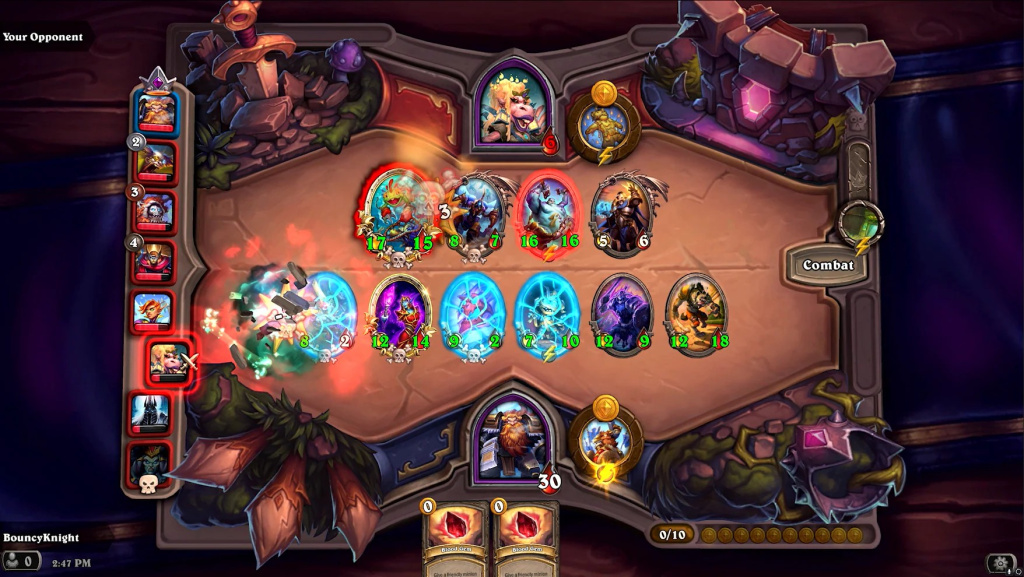
- Hearthstone. Эта карточная игра от Blizzard Entertainment завоевала популярность благодаря своему глубокому игровому процессу и высококачественной графике.
- Monument Valley. Игра известна своими инновационными головоломками и уникальным визуальным стилем.
- Pokemon Go. Этот глобальный феномен объединил дополненную реальность и геолокационные технологии, создав новый жанр мобильных игр.
- Shadow Fight 2. Эта игра стала настоящим хитом благодаря своему захватывающему сюжету и гладкой боевой системе. Unity позволило разработчикам создать детализированные анимации и сложные боевые механики, которые обеспечили высокую вовлеченность игроков.
- Monopoly Slots. Сочетая классическую настольную игру Monopoly с элементами слот-игр, этот проект демонстрирует гибкость Unity в создании игр различных жанров. Интеграция сложных игровых механик и визуальных эффектов была реализована без сбоев, что стало возможным благодаря мощным инструментам движка.
- Chess Kingdom: World. Этот проект превратил классическую игру в шахматы в мобильное приложение с рядом интерактивных функций. Unity обеспечило разработчикам необходимые инструменты для внедрения многопользовательских возможностей и визуальных улучшений, делая игру привлекательной и доступной для широкой аудитории.
Unity предлагает многоуровневую модель ценообразования, которая удовлетворяет потребности различных разработчиков — от индивидуальных создателей до крупных предприятий. Это позволяет разработчикам выбирать оптимальный план в зависимости от размера проекта и бюджета.
Использование Unity позволило разработчикам не только реализовать технически сложные идеи, но и сократить время и затраты на разработку благодаря его кроссплатформенной совместимости и обширному набору инструментов. Эти кейсы подчеркивают, как Unity помогает создавать игры, которые не только технически продвинуты, но и имеют высокий уровень вовлеченности и пользовательского удовлетворения.
Unreal Engine: Сосредоточение на качественной визуализации
Unreal Engine, разработанный компанией Epic Games, является мощным инструментом для разработки мобильных игр, особенно когда речь заходит о создании игр с высококачественной графикой. Этот движок известен своей способностью предоставлять разработчикам удобные инструменты и функции, которые способствуют созданию визуально впечатляющих игр без необходимости глубоких знаний в программировании.
Преимущества:
- Высококачественные визуальные эффекты. Unreal Engine заслужил репутацию благодаря своим передовым графическим возможностям, которые идеально подходят для разработки игр уровня AAA.
- Дружелюбная система Blueprint. Система Blueprint позволяет разработчикам создавать логику игры и сценарии событий без необходимости писать сложный код, что делает движок доступным даже для начинающих разработчиков.
- Оптимизация производительности. Инструменты и функции, встроенные в движок, обеспечивают оптимальную производительность игр на различных мобильных устройствах.

- Fortnite. Эта многопользовательская игра стала культурным явлением и отличается высококачественной графикой и плавной производительностью на мобильных платформах.
- PUBG Mobile. Мобильная версия популярной игры в жанре "королевская битва" также использует возможности Unreal Engine для достижения впечатляющего визуального качества и стабильности.
- Ark. Survival Evolved. Эта игра предлагает сложный и масштабный мир с высокодетализированной графикой, что стало возможным благодаря возможностям Unreal Engine.
Godot Engine: доступность и эффективность
Godot Engine за последние годы заслужил признание в индустрии благодаря своей легковесности и эффективности. Этот инструмент позволяет разработчикам всех уровней мастерства создавать мобильные игры, благодаря своему интуитивно понятному интерфейсу и поддержке разработки на разных платформах.
Преимущества:
- Интуитивно понятный интерфейс и визуальное программирование. Godot облегчает процесс разработки с помощью своей узловой архитектуры и визуальных скриптов, что упрощает изучение и использование даже для начинающих разработчиков.
- Легковесность и эффективность. Godot идеально подходит для разработки игр для устройств с различными техническими характеристиками, от низкопроизводительных до высокопроизводительных устройств.
- Поддержка многоплатформенной разработки. Движок позволяет разработчикам легко распространять свои игры на различных платформах, включая мобильные устройства, что расширяет аудиторию и рыночный потенциал проектов.
Примеры игр, разработанных на Godot Engine:
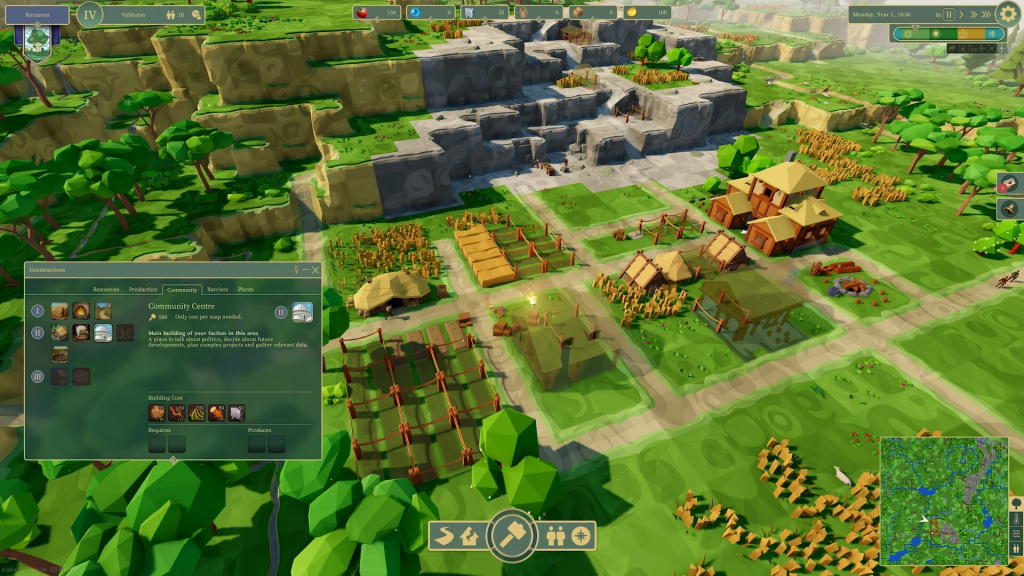
- The Garden Path. Эта игра посвящена строительству и управлению новыми поселениями в удаленных и неизведанных уголках империи.
- Deep Sixed. Эта игра в жанре космического симулятора вызывает интерес сложными задачами и глубоким игровым процессом.
GameMaker Studio: быстрое прототипирование и экспорт
GameMaker Studio является одним из самых надежных и установленных инструментов для разработки мобильных игр. Одно из ключевых преимуществ этой платформы — возможность экспорта игр на множество платформ, включая iOS и Android. Активное сообщество и наличие множества ресурсов делают GameMaker Studio особенно привлекательным для разработчиков.
Преимущества:
- Экспорт на разные платформы. GameMaker Studio обеспечивает бесперебойный экспорт на различные платформы, что способствует обеспечению последовательного пользовательского опыта на разных устройствах.
- Активное сообщество и рынок активов. Благодаря живому сообществу и богатому рынку ресурсов GameMaker предоставляет неоценимую поддержку и инструменты, которые упрощают разработку игр.
- Быстрое прототипирование. Разработчики могут быстро воплотить свои идеи в жизнь с помощью интерфейса перетаскивания и возможностей скриптования GameMaker.
Известные игры, разработанные на GameMaker Studio:

- Undertale. Эта игра выделяется своим уникальным повествованием и инновационным подходом к жанру RPG.
- Hyper Light Drifter. Игра известна своим сложным игровым процессом и стилистическим дизайном.
- Katana ZERO. Этот экшн-платформер привлекает игроков своей динамичной боевой системой и захватывающим сюжетом.
Construct 3: разработка без кодирования
Construct 3 выделяется среди инструментов для дизайна мобильных игр тем, что для его использования не требуется знание программирования. Этот визуальный инструмент разработки позволяет создавать игры, используя систему логики и предустановленные поведения. Особенностью Construct 3 является возможность мгновенного предварительного просмотра и тестирования, что делает процесс разработки игр более эффективным.
Преимущества:
-
Не требуется кодирование. Функционал перетаскивания элементов упрощает сборку игровых компонентов, делая разработку доступной широкому кругу пользователей.
-
Мгновенный предпросмотр и тестирование. Construct 3 дает возможность разработчикам мгновенно просматривать и корректировать свои игры, что облегчает динамичный процесс разработки.
-
Бесшовный экспорт на мобильные платформы. Платформа упрощает процесс публикации игр на iOS и Android, обеспечивая гладкий переход от разработки к развертыванию.
Заметные игры, созданные на Construct 3:
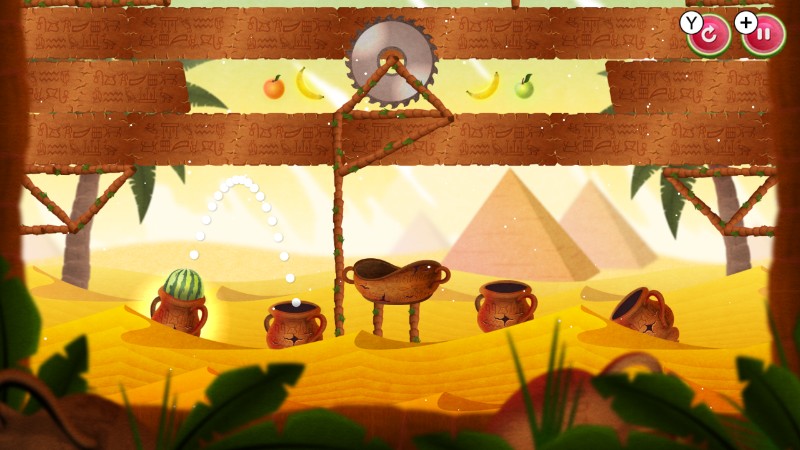
-
The Next Penelope. Эта гоночная аркада с элементами приключенческой игры привлекает внимание своей яркой графикой и инновационным геймплеем.
-
Mortar Melon. В этой аркадной игре игрокам предстоит управлять арбузом, преодолевая различные препятствия и собирая бонусы.
-
Airscape: The Fall of Gravity. Платформер с уникальными физическими головоломками, который испытывает восприятие гравитации.
Open 3D Engine: расширенные возможности физики и ИИ
Open 3D Engine (O3DE), разработанный Amazon, представляет собой мощный инструмент для разработки мобильных игр, который выделяется своими продвинутыми возможностями физики и искусственного интеллекта. Этот движок предоставляет открытую среду для сотрудничества, позволяя разработчикам вносить свой вклад и улучшать функциональность движка.
Преимущества:
-
Возможности физики и ИИ. O3DE включает в себя продвинутые инструменты симуляции для создания реалистичной физики и поведения ИИ, улучшая игровой опыт.
-
Сотрудничество с открытым исходным кодом. Открытая природа движка способствует подходу, основанному на сотрудничестве сообщества, что стимулирует инновации и общий рост.
-
Высококачественные визуальные эффекты. Разработчики могут использовать передовые возможности визуализации O3DE для создания визуально впечатляющих игр, адаптированных для мобильных устройств.
Поскольку O3DE является относительно новым игровым движком, ожидается, что в ближайшем будущем он будет использоваться в разработке прорывных мобильных игр. Благодаря своим расширенным возможностям движок обещает стать основой для игр нового поколения.
O3DE предоставляется бесплатно, что делает его доступным для широкого круга разработчиков. Поддержка сообщества осуществляется через взносы и совместную разработку, что способствует постоянному обновлению и улучшению движка.
Cocos2d-x: гибкий инструмент для 2D игр
Cocos2d-x — это открытый и бесплатный фреймворк для разработки мобильных игр, который широко известен своей эффективностью в создании 2D игр. Этот инструмент поддерживает множество платформ, включая iOS, Android, Windows, и Mac, что делает его идеальным выбором для разработчиков, стремящихся к широкому охвату аудитории.
Преимущества:
- Специализация на 2D. Cocos2d-x особенно хорошо подходит для создания 2D игр благодаря своим оптимизированным рендеринговым возможностям и поддержке различных 2D графических эффектов.
- Мультиплатформенная поддержка. Поддержка широкого спектра платформ обеспечивает разработчикам гибкость в выборе целевых систем, увеличивая потенциальную аудиторию их проектов.
- Активное сообщество и ресурсы. Несмотря на то что сообщество Cocos2d-x может быть меньше, чем у крупных игровых движков, оно активно и поддерживающее, предоставляя множество учебных материалов и готовых к использованию ресурсов.
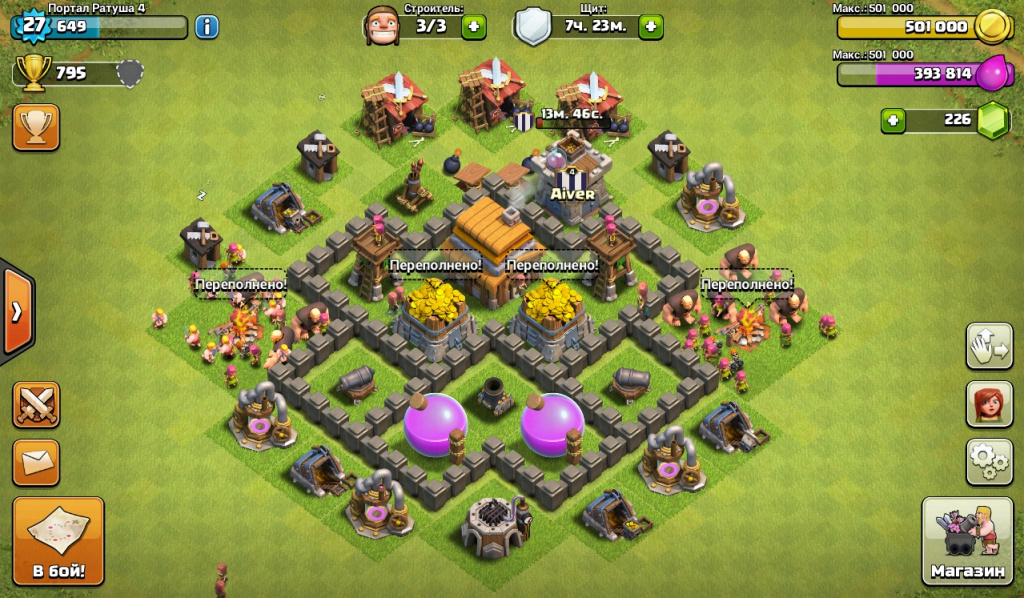
- Badland. Игра получила признание за свои инновационные головоломки и визуальное оформление.
- Clash of Clans. Один из самых успешных проектов на Cocos2d-x, показывающий, что фреймворк способен поддерживать высоконагруженные и прибыльные игры.
Подробный анализ рынка движков для игр
В текущем глобальном ландшафте игровых движков, знание тенденций и динамики рынка является ключевым для принятия обоснованных решений в области разработки игр. Основываясь на данных из последнего отчета о глобальной индустрии игровых движков, можно выделить несколько важных аспектов, которые оказывают влияние на выбор движка для разработки мобильных игр.
Ключевые направления анализа:
- Доминирование на рынке. Unity и Unreal Engine продолжают доминировать на рынке благодаря своим расширенным функциональным возможностям и широкому применению в индустрии. Однако новые движки, такие как Godot и Open 3D Engine, начинают привлекать внимание за счет своей адаптивности и открытого исходного кода.
- Инновации в технологиях. Современные движки внедряют последние достижения в области искусственного интеллекта, виртуальной и дополненной реальности, что значительно расширяет горизонты разработки игр.
- Рост мобильного гейминга. С увеличением числа мобильных пользователей по всему миру, движки, оптимизированные для мобильных платформ, получают особую популярность. Это стимулирует разработчиков выбирать такие платформы, которые лучше всего подходят для создания игр на iOS и Android.
- Влияние открытого исходного кода. Открытые платформы, такие как Godot и O3DE, стимулируют инновации и сотрудничество в индустрии, предлагая разработчикам большую гибкость и контроль над их проектами.
- Экономические соображения. Ценообразование остается важным фактором при выборе движка. В то время как некоторые движки предлагают бесплатное использование с открытым исходным кодом, другие, такие как Unity и Unreal Engine, предлагают гибкие модели лицензирования для различных типов и размеров проектов.
Советы по выбору движка в зависимости от проектных требований
Выбор подходящего игрового движка — критически важный шаг в процессе разработки мобильных игр, который влияет на все от производительности и качества игры до сроков ее выпуска и общей стоимости проекта. Ниже представлены ключевые рекомендации, которые помогут разработчикам определить наиболее подходящий движок для их конкретных нужд и проектных требований.
Ключевые факторы для выбора движка:
- Технические требования игры. Оцените сложность вашего проекта — нуждается ли он в передовых 3D-графиках, физическом моделировании или поддержке многопользовательских функций? Для проектов с высокими требованиями к графике и производительности может подойти Unreal Engine, тогда как для более простых 2D-игр подойдут Godot или GameMaker Studio.
- Платформенная совместимость. Убедитесь, что выбранный движок поддерживает все целевые платформы для вашей игры. Например, Unity и Unreal Engine предлагают отличную кроссплатформенную поддержку и позволяют разрабатывать игры одновременно для iOS, Android и других систем.
- Уровень знаний и опыта команды. Рассмотрите уровень технической подготовки вашей команды. Например, если в вашей команде недостаточно опыта в программировании, движки с визуальным скриптингом, такие как Unreal Engine с его системой Blueprint или Construct 3, могут быть более предпочтительными.
- Бюджет и лицензирование. Оцените стоимость лицензирования движка и его соответствие вашему бюджету. Некоторые движки, как Unity, предлагают гибкие планы подписки, которые могут быть выгодными для стартапов и независимых разработчиков.
- Поддержка и ресурсы сообщества. Доступ к обширному сообществу и образовательным ресурсам может значительно ускорить разработку и решение возникающих проблем. Движки с большими и активными сообществами, такие как Unity и Unreal Engine, предоставляют обширные базы знаний и форумы для поддержки.

